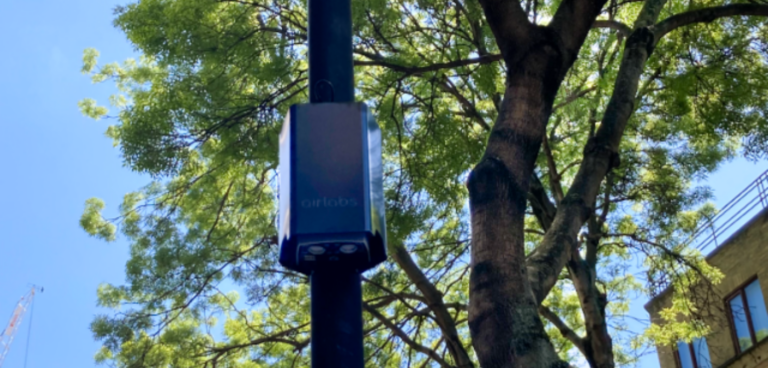What’s reported to be the world’s first publicly accessible, local air-quality sensor network has launched in Camden, London.
AirScape has installed more than 225 air-quality sensors across Camden, in partnership with Camden Council and the Camden Clean Air Initiative.
The fixed sensor network reportedly provides 45 times more data points and refreshes 60 times more regularly than existing air-quality reference sites.
It is designed to show a street-by-street picture of air quality, which can be monitored by the public in real-time on the AirScape web platform.
AirScape hopes the project will provide a blueprint for other London boroughs and cities.
Dr Matthew Johnson, chief scientific officer at AirScape, said: “Air pollution is one of the most profound issues facing humanity today.
“Tackling this crisis requires policy makers, businesses and the general public to have a real-time, accurate understanding of air quality through accessible, publicly available data.
“The network is supporting policy makers to make data-driven choices to protect the health and wellbeing of the local community, whilst giving the public the ability to make informed decisions every day to reduce their exposure to air pollution.
“Camden is a vital first location for the deployment of AirScape, and our ambition is to install networks across every major city in the world, to enable a giant leap in our ability to tackle the air pollution crisis.”
Beta testing has already identified daily incidents that occur on one street but not another, and has shown pollution differences in time.
Some key findings include that, on Tuesday 01 March, the day of the London tube strikes, there were big increases in rush hour NO2 due to greater use of road transport. On Friday 17 June, the hottest day of the year so far, there were unhealthy levels of ozone present across Camden.
Furthermore, a recent report by the National Audit Office revealed that the UK government is not on target to reduce air pollution and is not effectively informing the public about the problem.
The Camden Clean Air Initiative and AirScape are working together to help encourage local groups, businesses, NGOs and members of the public to engage with the now freely accessible platform.
AirScape claims that the collected data has a range of uses, such as helping residents choose less polluted routes, supporting local traffic management and providing NHS Trusts and schools with data to protect vulnerable communities.





